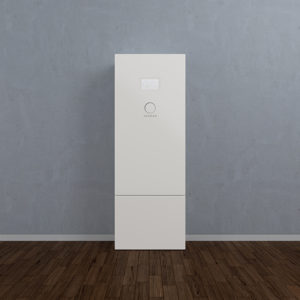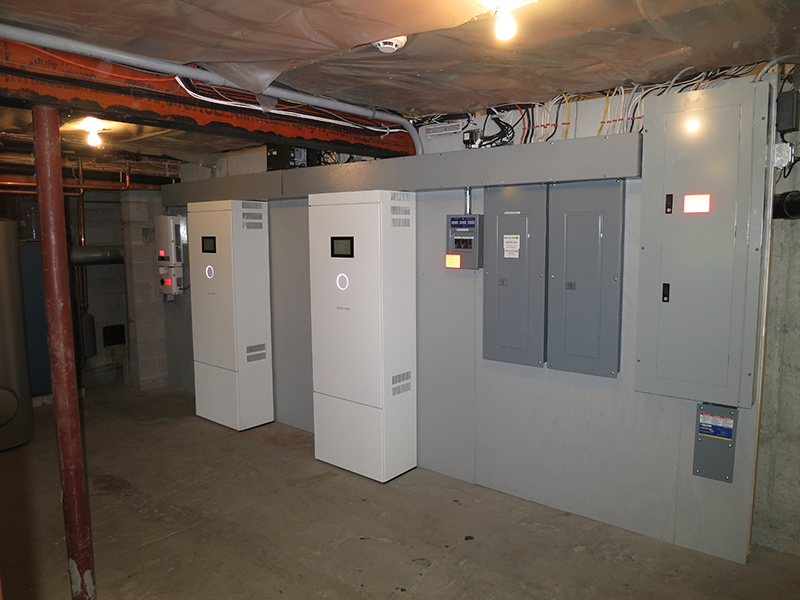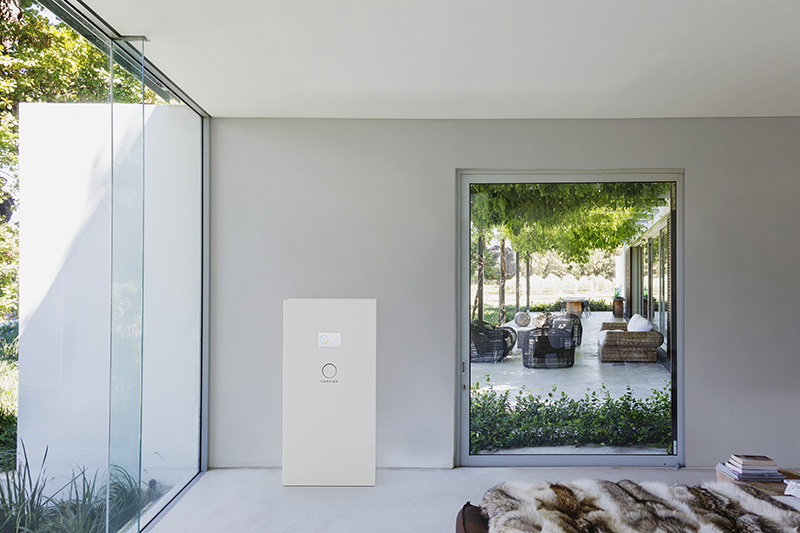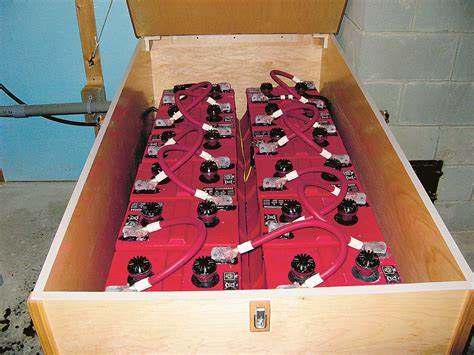
Alternative Energy Batteries | Vermont
 Batteries are primarily used in off-grid, or stand-alone renewable energy systems, although some grid tied systems use batteries in areas where power outages are frequent but of fairly short duration, or as backup systems for commercial and residential applications. The batteries can be one of the most costly portions of a renewable energy system and also the easiest to damage.
Batteries are primarily used in off-grid, or stand-alone renewable energy systems, although some grid tied systems use batteries in areas where power outages are frequent but of fairly short duration, or as backup systems for commercial and residential applications. The batteries can be one of the most costly portions of a renewable energy system and also the easiest to damage.
Batteries used in a renewable energy system are normally connected together in groups called battery banks, and will often contain enough power to cause serious injury or death if mishandled or improperly maintained.
The information presented on this page is designed to provide you with an overview of the use of batteries in renewable energy systems.
Because of the dangers associated with high amperage and explosive gassing we ask that you fully familiarize yourself with the information in the battery manufacturer’s manual and MSDS before beginning any use or maintenance on a battery system.
Please see our Battery Safety page for additional information on battery safety and upkeep.
Types of Batteries
 In the United States, the battery most commonly used for residential scale renewable energy applications is the lead-acid battery.
In the United States, the battery most commonly used for residential scale renewable energy applications is the lead-acid battery.
Like the battery in your automobile, a lead-acid battery is comprised of a series of lead plates surrounded with an acid solution called electrolyte. However, unlike an automobile battery, the batteries used in renewable energy systems are designed to be “deep-cycled.”
Deep-cycling means that the batteries are designed to provide a small amount of current over a long duration.
Deep cycle batteries can be discharged to as much as 80% of their capacity before a recharge is required, which would quickly ruin a typical automotive battery.
Three types of lead-acid batteries are available for use in renewable energy systems: wet-cell (or flooded), gel cell, and absorbed glass mat (AGM).
Each type of battery has its advantages and disadvantages.
Wet-cell batteries require maintenance, produce explosive gasses when charging and therefore require venting, and can spill electrolyte if tipped, but will last longer (with proper maintenance and charging practices) and are much less expensive.
Gel cell and AGM batteries are maintenance free, experience little gassing while charging, will not spill electrolyte (even if broken open), and can be mounted in any position, but they are easily damaged by improper charging, cannot be serviced if electrolyte levels become low, have a shorter life expectancy, and are nearly twice as expensive as most comparable wet-cell batteries.
In general, AGM batteries perform better than gel cell batteries, and outsell gel cells by a wide margin. Because of this we do not sell or recommend gel cell batteries for use in renewable energy systems.
How do I decide which battery to use?
 This is one of the most common questions we are asked. The answer will depend upon the type and size of your renewable energy system, how your system is used, and your budget.
This is one of the most common questions we are asked. The answer will depend upon the type and size of your renewable energy system, how your system is used, and your budget.
In general, we recommend flooded lead-acid batteries for most applications.
As discussed above, these batteries perform better, are more cost effective, and are more forgiving than AGM batteries. A well designed and maintained flooded lead-acid battery bank will last three to ten years or more and will provide much more storage capacity per dollar than a similarly sized sealed battery bank.
The requirement for regular maintenance means that you will be looking at your battery bank more often allowing you to catch and repair problems like corroded terminals before they affect system performance.
RES-TEC even offers an automated battery watering system which makes regular servicing a cinch.
With this system topping off electrolyte to the proper level takes only a few minutes a week, and you will not even have to touch your batteries! Please contact our RES-TEC professionals for additional information on this labor saving option.
AGM batteries are most often used in remote locations such as vacation cabins where regular maintenance is difficult or impossible, or in grid-tied with battery back-up systems in which the batteries are almost always kept fully charged.
If you are unsure as to which type of battery will be best for your application please contact us to further discuss your specific needs.
Regardless of which type of battery you use, a high quality multi-stage charging system with the ability to monitor the battery state of charge and temperature is a must.
Improperly charging your battery bank will not only quickly ruin an expensive and essential part you your system, but could lead to excessive poison gassing, fire, or explosion. Don’t cut corners on your charging system!
How many batteries do I need?
 The answer to this question involves several factors, but primarily boils down to how large the system loads are and how long you want the batteries to power your loads before a recharge is necessary.
The answer to this question involves several factors, but primarily boils down to how large the system loads are and how long you want the batteries to power your loads before a recharge is necessary.
When sizing a battery bank we also take into consideration factors such as the type and size of the back-up charging system, temperature of the battery storage location, available space, and the customer’s budget.
Technical information on sizing your battery bank is available from our RES-TEC design professionals; please Contact Us if you would like assistance.
Because system requirements and budget concerns vary so widely, RES-TEC offers batteries from several manufacturers ensuring we can meet the battery storage and budget requirements for every situation. Please contact us for specific information on batteries from HuP, Solar-One, Rolls/Surrette, Direct Power, and US Battery.
The experts at RES-TEC are here to help make choosing the right battery a simple and hassle free process. Give us a call!
CONTACT US TO LEARN MORE TODAY
Please fill out and submit the Free Estimate Form to receive our competitive solar panel quote. Once we receive your request, we will contact you with further assistance.
We will not give or sell your information to any 3rd party.
